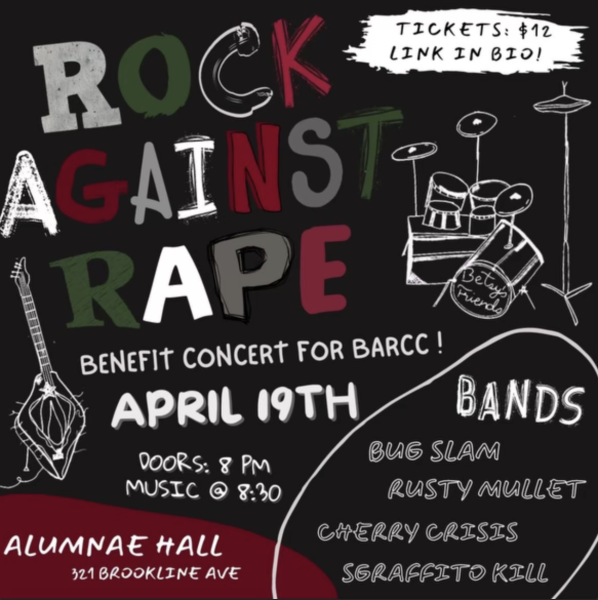By Laura Chandler
Contributing Writer

Khayelitsha, South Africa– “The ANC liberated us? I beg to differ. Mandela is a saint? I beg to differ.”
These are the words of Mandla Majola, the Treatment Action Campaign (TAC) district coordinator in Khayelitsha’s Site C, and they express the views of many South Africans we met over three weeks in the country.
Dissatisfaction with the African National Congress (ANC) appears to be at an all-time high with many saying it has not lived up to the promises of the post-apartheid constitution, which guarantees access to housing, education, and equality for all. These failures have led to the political competition, with other parties starting to gain ground.
The ANC, once banned as a “terrorist” organization, has been in power for the past 20 years, since the end of the system of racial domination known as apartheid. It has come a long way from its days as an underground liberation movement, but its critics charge that it is not doing so well as a governing party.
In the spring 2014 elections the ANC slipped from controlling 65.9 percent to 62.2 percent of the vote. This means it lost the two-thirds majority it had achieved in the last four elections and no longer has the seats in parliament to override its opponents on constitutional issues.
The leading opposition party, the Democratic Alliance (DA), received 22.2 percent, up significantly from 16.6 percent at the last elections.
Much of this slip in popularity has been attributed to the actions of President Jacob Zuma and the charges of corruption against many government officials. The popular opinion among the younger generation is that South Africa’s wealth is not being distributed equally.
The people’s money doesn’t go to the people, but to the government, claim many lower income South Africans.
“They buy cars for R1.4 million ($140,000) and it is all paid for by the tax dollars of the people,” says Noor Ebrahim, a founder of the District 6 Museum in Cape Town. His jaw clenches tightly, fists opening and closing as he struggles to express the magnitude of the governments frivolous spending. “Zuma is spending so much money on his house, and we have all these people living in shacks. Winter is coming, and I feel for the people.”
For the residents of District 6, once a thriving multi-racial community, who were forcefully removed from their homes and communities by the apartheid regime in the 1960s, the ANC has promised 5,000 homes. Only 139 were built. In this past election cycle party officials came to the area and spoke of building another 300 in the upcoming months.
These displaced community members have not seen the results of ANC promises and have little hope of progress.
Those who feel that the ANC is the only choice for the government still take issue with the spending and allocation of resources to the people. Service delivery and access to housing in particular has been a problem for those who are in townships, informal settlements, and lower income areas.
Housing access is often quoted as being the number one issue facing South Africa today. According to the country’s last census, there are between two and three million households awaiting a residence.
“Housing has been the biggest problem since 1994, there is so much corruption,” says Shereen Habib, a former ANC activist and political party member. However, she insists that the ANC is the best option for the future of the country, in contrast to alternatives like the DA, and is trying to provide wider access to services.
According to Habib, the provinces operating under DA control have also experienced serious problems with service delivery.

“It is not equal, and it is not fair,” Habib says with a furrowed brow. She is concerned that the money is not being spread to those who need it most. The people paying higher taxes and living in middle-income areas are being ignored as they fall victim to the same struggles for housing and unemployment as those in poorer communities.
Habib says the DA is too aligned with the former apartheid regime and that under their control the promises of the constitution would be ignored, a concern many other South Africans voice.
There is a fear among many who experienced the horrors of the apartheid regime that if the ANC were to lose their position as the ruling party those who supported the separatist system would come back into power.
This makes the DA, primarily made up of white participants, a non-viable party for the majority of South Africans.
After 20 years in power there is a whole generation called the “born-frees” who never experienced the liberation movement and the horrors of their apartheid regime. Those born on or after April 27, 1994, when the country overwhelmingly voted for Nelson Mandela as president are part of the born-free generation. They are not aware of the relief and euphoria that followed the ANC’s victory, and they do not have this built in mentality that the ANC has their best interests at heart.
According to Bobby Marie, a political activist who works closely with youth, the slogan of the born-frees is that “we have been given political freedom, but no economic freedom.” As the divide between the rich and the poor continues to grow, so does the public’s dissatisfaction and unrest. They want the country’s wealth to lie with the people, not with the government and the corporations.
Alternatives to the ANC have presented themselves over the past year that take these issues head on. In the 2014 election the Economic Freedom Fighters (EFF), a South African political party started by expelled former ANC Youth League President Julius Malema, and his allies in 2013, received 6.5 percent of the vote.
The supporters of Malema and his party have proven to be primarily young, urban, and angry. At a time when youth unemployment in the country is over 50 percent, there are huge populations of people that have nothing to occupy their time, are angry about their lack of opportunities, and do not want to wait for the ANC to come through on their promises.
The ANC has not focused on mobilizing this generation and have not done much to address these concerns, critics say. The EFF speaks to the interests of the born frees, and Malema, a charismatic leader and speechmaker, has taken advantage of the opening. The EFF is the only party in the country to advance so quickly, in one year, and gain such a significant portion of the vote (1,169,259 people).
Meanwhile, some who feel the EFF will not make significant changes are not turning to the ANC, but simply dropping out of the election process. Only a third of those born after 1994 are registered to vote. A majority of students at Funda Community College in Johannesburg say they did not want to vote for the ANC, but saw no viable alternative. This tendency to abstain from the political process and focus more on protests and community action is common across the born frees.
Increasing identification with the EFF and disengagement from the political process are signs that the ANC, while still hugely popular and the main party of the people, needs to focus on where their votes are coming from and who they are reaching with their platforms.
“It is not about the past, it is about today, the problems we have today,” says Majola when asked about the future of the country’s government. The ANC is going to have to pay close attention to those problems and the youth who care so deeply about them to continue being South Africa’s long-term, dominant party.
As a part of the Human Rights in South Africa course, 11 students learned about the history of apartheid and the current social situation of South Africa. In May, they visited the country and witnessed the situation first-hand, speaking with people from activists and average citizens to U.S. diplomats and commissioners.
You can check out their blog at http://bit.ly/1rVeGkQ.



















